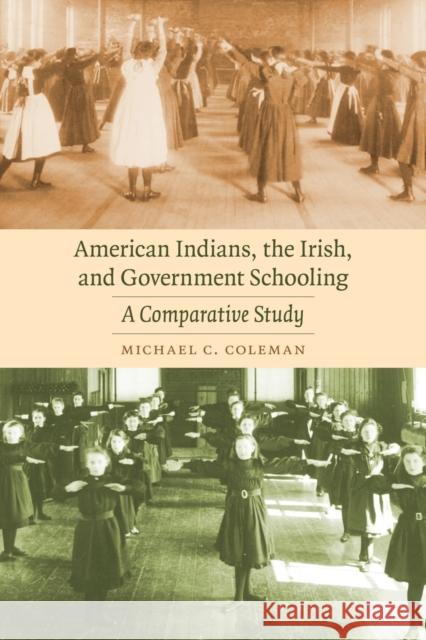American Indians, the Irish, and Government Schooling: A Comparative Study » książka
American Indians, the Irish, and Government Schooling: A Comparative Study
ISBN-13: 9780803224858 / Angielski / Miękka / 2009 / 400 str.
For centuries American Indians and the Irish experienced assaults by powerful, expanding states, along with massive land loss and population collapse. In the early nineteenth century the U.S. government, acting through the Bureau of Indian Affairs (BIA), began a systematic campaign to assimilate Indians. Initially dependent on Christian missionary societies, the BIA later built and ran its own day schools and boarding schools for Indian children. At the same time, the British government established a nationwide elementary school system in Ireland, overseen by the commissioners of national education, to assimilate the Irish. By the 1920s, as these campaigns of cultural transformation were ending, roughly similar proportions of Indian and Irish children attended state-regulated schools. In the first full comparison of American and British government attempts to assimilate "problem peoples" through mass elementary education, Michael C. Coleman presents a complex and fascinating portrait of imperialism at work in the two nations. Drawing on autobiographies, government records, elementary school curricula, and other historical documents, as well as photographs and maps, Coleman conveys a rich personal sense of what it was like to have been a pupil at a school where one's language was not spoken and one's local culture almost erased. In absolute terms the campaigns failed, yet the schools deeply changed Indian and Irish peoples in ways unpredictable both to them and to their educators. Meticulously researched and engaging, American Indians, the Irish, and Government Schooling sets the agenda for a new era of comparative analyses in global indigenous studies. Michael C. Coleman is a senior lecturer in the English section of the Department of Languages at the University of Jyvaskyla, Finland. He is the author of American Indian Children at School, 1850-1920 and Presbyterian Missionary Attitudes toward American Indians, 1837-1893.











